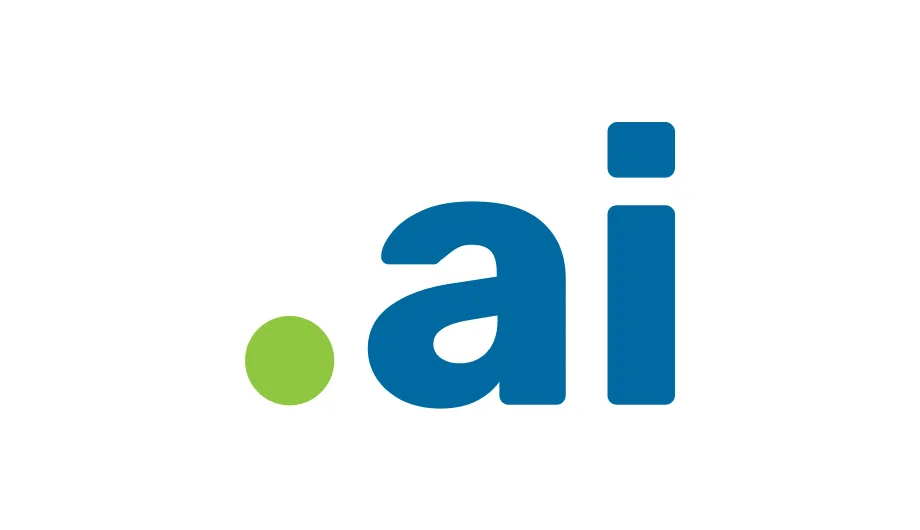AI is changing the way businesses get things done — and not just for the ‘big tech’ firms. In fact, small business owners might be the ones set to gain the most from this revolution. With tools more accessible and affordable than ever (many even free), solo entrepreneurs can tap into AI power for a real competitive edge.
In this article, we’ll explore how small businesses can use AI in practical ways. We’ll also bust some myths and show that the tech isn’t as tricky or expensive as it might seem.
What is AI, anyway?
In a nutshell, AI is software that uses algorithms to do things in a way that mimics human intelligence.
AI isn’t the future — it’s already here, changing the way we live and work. From smart home gadgets that preheat your oven to apps that help diagnose health issues, AI is a revolution happening right now.
The rise of “generative AI” (like ChatGPT) in the last couple of years has pushed everything forward. What once felt like science fiction is now part of everyday life, helping businesses and everyday people alike to get much more done.
The UK is actually one of the big hotspots. With twice as many AI tech firms here as any other nation in Europe, the British AI industry is on course to exceed £4.5 billion in value. London is home to several of world’s biggest names, including Google’s own lab, DeepMind.
As AI continues to grow, 83% of small business owners plan to invest more in it more, according to the SBEC Small Business AI Adoption Survey — showing just how essential it’s becoming for staying competitive.
What’s the difference: AI, machine learning, and automation
☐ Artificial Intelligence is about machines performing tasks like humans do, like understanding language or coming up with ideas. The aim is to make systems that can think and learn like us.
☐ Machine Learning is a sort of AI that lets machines learn from data. Instead of being programmed for everything, they spot patterns, make predictions, and get better over time.
☐ Automation is often confused with AI, but it’s a bit different. Instead, it’s tech that’s designed to perform repetitive tasks automatically (like setting up automated email replies). It might work together with AI, but it’s following rules rather than learning.
A lot of companies are sneakily using “AI” these days when “Automated” would be more accurate. (With all the buzz around AI, who can blame them?)
Why use AI for your business?
Running your own business means wearing a lot of hats. Customer service, marketing, accounting, making the tea — there’s always something that needs doing. As your to-do list grows, AI helps you work smarter.
“As your to-do list grows, AI helps you work smarter.”
Sure, you might already know that ChatGPT can answer questions faster than Google, come up with product name ideas, or write a haiku about your cat. But you might be surprised by just how much more it can do for business:
✓ Improved productivity
AI handles the mundane tasks — sorting emails, booking appointments, managing stock. That frees up time to focus on business. And it can do so even when you’re not around. 44% of business leaders have reported increased productivity through AI.
✓ Faster, easier content creation
Content creation is one of the most time-consuming tasks for small business owners. AI speeds things up, helping produce product descriptions, campaign emails, blogs, and social posts in moments. That means less time staring at a blank page and more time connecting with customers.
✓ Better customer Service
From providing 24/7 support with chatbots to offering personalised shopping suggestions, AI can make your customers feel special. The more tailored the experience, the more likely they are to stick around and recommend you to others. AI also helps you understand what customers love (and what they don’t), so you can keep improving.
✓ Smarter decision-making
AI can gather and analyse data like shopping habits or product trends in real time, giving business owners the insights they need to make smarter choices.
✓ Reducing costs (in all sorts of different ways)
93% of small business owners agree AI can be a cost-effective way to increase profits. Be that assisting in creative work or simply automating task to free up resources, AI can help reduce overheads.
10 ways to use AI for your small business
1. Automating the daily grind
These AI tools help small businesses cut down on admin and focus on what matters. From managing your calendar to transcribing meetings, there’s an AI for almost everything.
Our Pick: Microsoft 365
Microsoft 365 comes packed with AI features to help with everyday tasks. Suggesting email replies, automating work in Word and Excel, and even taking notes (and summarising) Teams meetings — it’s all built into the apps you already use, making M365 a smart choice for businesses looking to achieve great things.
Copilot, Microsoft’s AI tool for Windows, is now more fully-connected with M365. Serving to replace the Cortana assistant (poor old Cortana!), Copilot works alongside Microsoft 365 to make tasks easier, a bit like your virtual PA.
More Top Picks:
• ClickUp AI – An in-browser productivity app that writes task descriptions, drafts emails, and helps keep projects on track.
• Fireflies.ai – An in-browser tool (with browser extension) that records, transcribes, and summarises meetings.
• Motion – A smart calendar available as both an app and in-browser tool that schedules tasks and builds itineraries.
• Notion AI – A note-taking tool that summarises thoughts and drafts documents, for browser and mobile.
• Otter.ai – Another transcription app that captures conversations and creates instant summaries.
• Reclaim.ai – A browser-based scheduling app that helps plans meetings and auto-blocks your focus time.
2. Brainstorming (anything!)
Coming up with ideas on your own can be tough, especially for the solo business owner or if you’re working remotely. While you could ask the postman or “hop on a quick Zoom call”, sometimes you just need a more efficient answer.
This is where generative AI excels. Stuck for ideas? Need an outline that flows? Trying to come up with a catchy name for your next product or service? See what AI can come up with.
Our Pick: ChatGPT
The one that kickstarted it all, ChatGPT is still the pick of the bunch as your all-round AI coworker.
Think of ChatGPT as a precocious intern who’s full of ideas. The latest version passed a Mensa test with an estimated IQ of 120 — proving just how sharp it’s becoming.
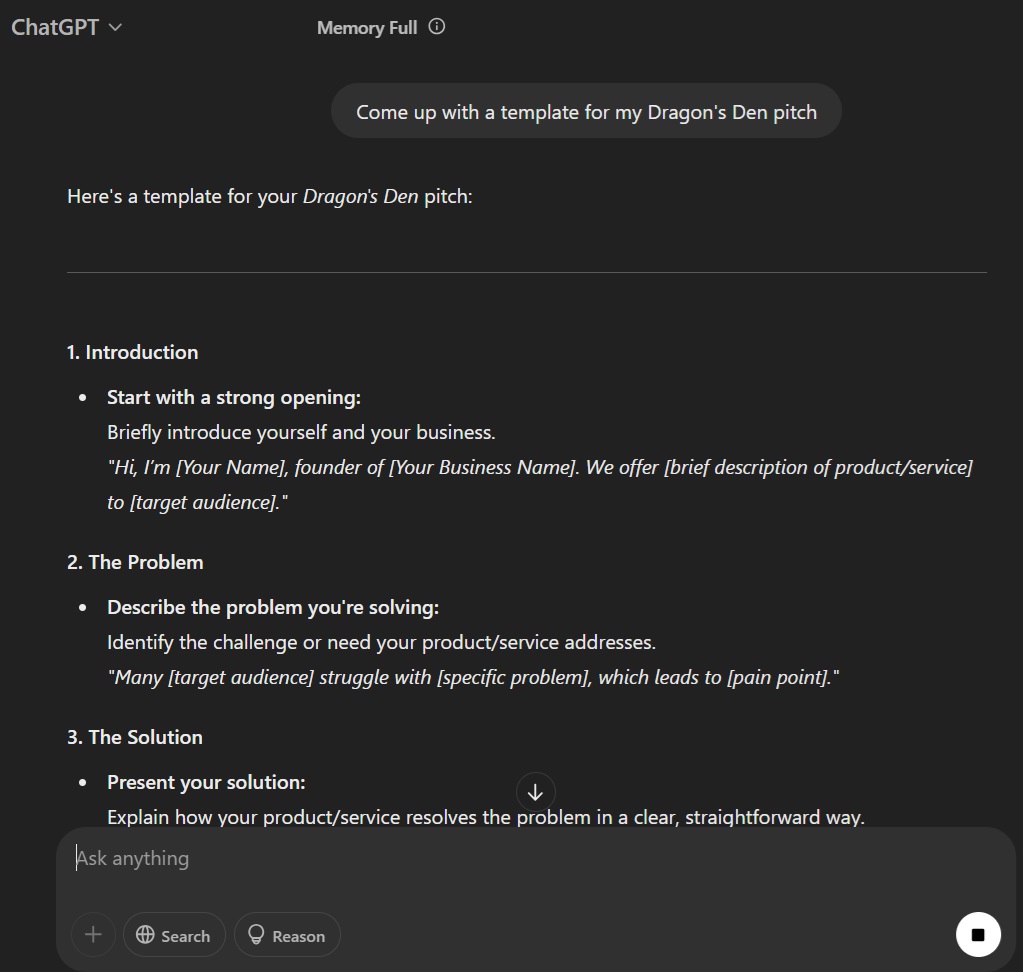
With the right prompting it can come with human-like suggestions across a huge range of topics. Its adaptability makes it a great tool for any type of brainstorming session. A prompt might be something like:
☐ Content ideas “Give me blog topics for a British bakery targeting local customers.”
☐ Social media posts: “Write five Instagram captions promoting handmade candles.”
☐ Marketing copy: “Suggest a slogan for a dog grooming service in Cheltenham.”
☐ Customer FAQs: “List common questions customers might ask a home cleaning service.”
More Top Picks:
• Gemini – First launched as Bard, Gemini is Google’s gen-AI tool and is great at pulling information from the web. Can still be a little stubborn when it comes to following instructions or adapting to additional prompts.
• Perplexity AI – A free AI for answering questions and generating text. Perplexity often comes up with more concise responses compared to others.
• DeepSeek – The new kid on the block and a fresh and exciting tool for content ideas. DeepSeek seems to prefer writing in a very informal tone unless told otherwise.
3. Content Creation
A. Writing & Editing
Writing content takes time, especially for small business owners juggling many tasks. Here are some AI tools help speed up the process, from drafting blog posts to come up with marketing copy.
Our Pick: Jasper
Jasper is a powerful content generator for articles, blogs, social media posts, and marketing copy. Known for its adaptability, it can create content in various tones and styles, making it a top choice for businesses looking to maintain a strong, consistent brand voice.
More Top Picks:
• ChatGPT – Yes, it’s great for content creation, too.
• CoWrite – A tool that’s especially good at matching brand style for on-brand content.
• Wordtune – An app to improve clarity and rewrite sentences for better readability.
• Grammarly – An all-rounder for checking grammar, spelling, and tone, making your writing more professional.
• Jetpack AI Assistant – A WordPress plugin that offers AI-powered content suggestions for articles.
B. Visual content
These are tools that can make your visual content creation faster and more effective. According to Synthesia.io, employees save 34% of their time, or 45 hours a month, using AI video production.
Our Pick: Craiyon
Our best pick for a free or freemium option, Craiyon is easy to use and generates AI images from text prompts in seconds. Simply enter a description, and it transforms it into unique visuals. Ideal for quick designs, it’s perfect for creating everything from simple graphics to more complex images.
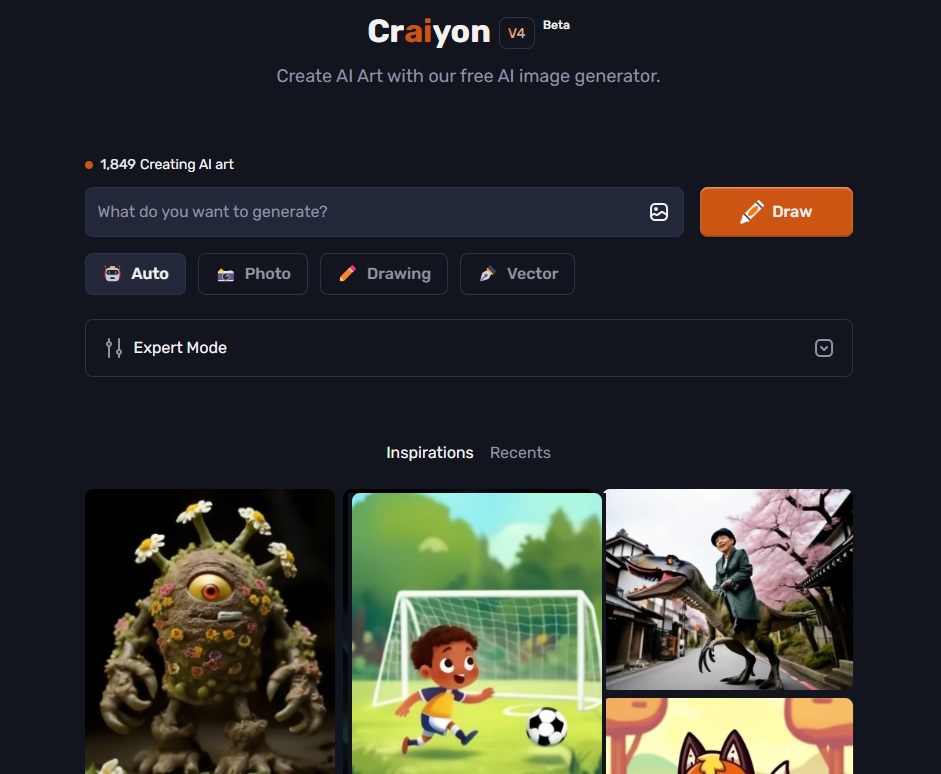
• Adobe Firefly – An app to improve images with AI-powered tools, offering a range of creative possibilities.
• NightCafe – Turns text descriptions into beautiful digital artwork, giving you limitless creative options.
• Runway ML – A suite with AI-powered video editing and special effects, ideal for creating standout video content.
• WP Draw Attention – A WordPress plugin that helps with AI-assisted interactive images and content.
4. Customer Service with AI
Speaking to customers isn’t always easy, especially when there’s a long queue or it’s after hours. AI chatbots and tools can step in to answer questions, solve problems, and keep things running. Chatbots can cut customer support costs by up to one-third, according to InData Labs.
Our pick: Tidio
Tidio is an excellent WordPress-compatible AI chatbot for real-time customer support. It integrates easily with your site and messaging platforms like Facebook Messenger, giving fast and helpful responses.
More Top Picks:
• Zendesk – A powerful customer service tool with a WordPress plugin that offers live chat, AI chatbots, and ticket management.
• Drift – Specialises in AI-driven marketing conversations, and its WordPress plugin helps engage customers and automate support.
• ChatSpot – Powered by HubSpot’s CRM, this WordPress-friendly tool automates customer service and generates insights with ease.
5. Sales and marketing
AI can make life easier for small businesses by helping with lead generation, customer engagement, and targeted marketing. A study by Campaign Monitor found that 41.29% of marketers saw higher revenue with AI-powered email marketing. With the right tools, businesses can personalise offers and boost customer loyalty.
Our Pick: Pmax (Google Ads)
Pmax is an AI tool from Google Ads that makes managing ads a lot easier. It automates campaign tasks and helps you get the most out of your ads by reaching the right people and improving results.
See also: How to Get Your Business Found with Google Ads
More top picks:
• Zoho’s Zia – A great AI tool for generating leads, managing sales, and even writing sales copy. It works well with your CRM to make sales smoother.
• MarketMuse – Helps businesses find SEO opportunities by analysing keywords and trends, so you can stay ahead of the competition.
• Upmetrics – A tool with 400+ templates to help you create business plans.
• Persado – AI-driven marketing copy that’s designed to convert leads into customers.
6. AI for SEO
SEO (Search Engine Optimisation) helps websites rank higher on search engines like Google, making them easier to find. AI tools can make this easier by looking into the data and coming up with keywords suggestions to match what people search for.
Our Pick: 123 Reg SEO Optimiser
A feature of 123 Reg Managed WordPress Hosting, this tool does all the hardwork of SEO for your WordPress site by offering keyword suggestions, content tips and performance checks.
More Top Picks:
• Surfer SEO — Analyses top-ranking pages to guide content creation, suggesting keywords, structure, and readability improvements.
• Clearscope — Uses AI to optimise content for search engines, offering keyword recommendations and readability scores.
• Frase.io — Helps create SEO-friendly content by researching topics, identifying keywords, and creating content briefs.
7. Social media sorted
Managing social media can be one of the most time-consuming things for small business owners today. Thankfully, there are plenty of automated tools out there to help with scheduling posts. AI comes into play with “social listening”, helping businesses track what’s being said about their brand online in real time.
Our Pick: Hootsuite
Hootsuite is a comprehensive social media management platform for scheduled posts, engagement tracking, and advanced social listening tools to keep an ear on what’s being said about your brand.
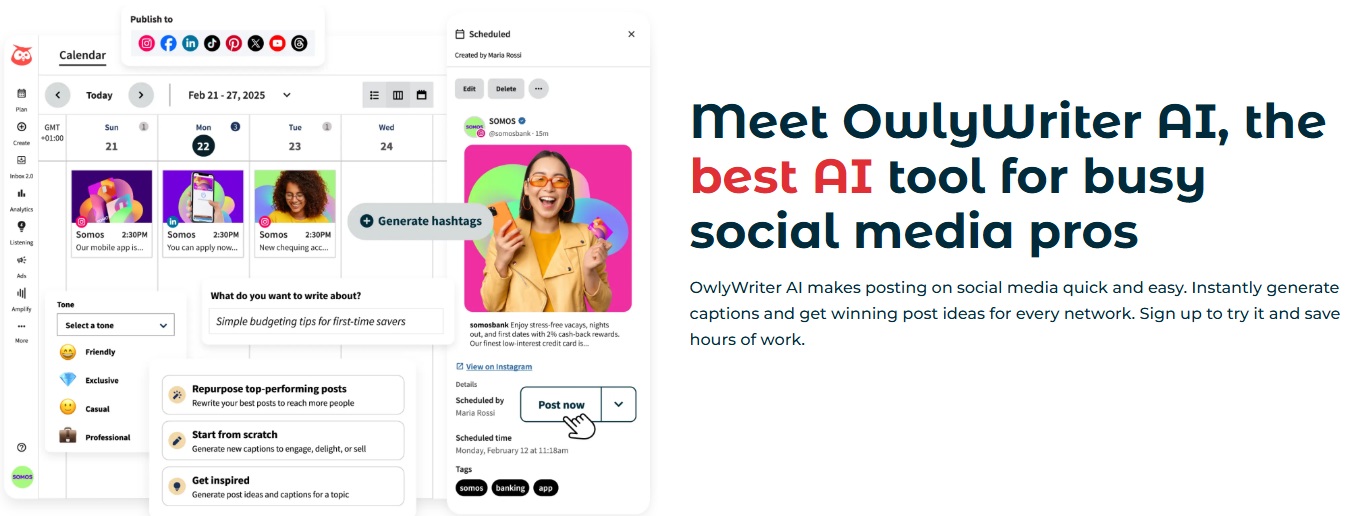
More Top Picks:
• Buffer – An easy tool for automated posting across multiple platforms, with analytics for tracking performance.
• Sprout social – Provides social listening, scheduling, and detailed analytics to help optimise your social strategy.
• Zoho Social – Automates posts and offers listening tools to monitor audience sentiment and engagement.
• SocialBee – Great for managing posts, content curation, and social listening across all your accounts.
8. Communication with AI
Presentations
• Tome – Turns docs into slide presentations with a single click. Tome designs individual slides with text and images or creates complete presentations.
• Gamma – Uses AI to create presentations, pitches, documents, and web pages.
• Beautiful.ai – A tool for designing visually-appealing presentation slides.
Translation
75% of companies surveyed in 2024 plan to use Large Language Models (LLMs) within the next year, showing a shift toward AI-driven translation. (Source: Smartling)
• DeepL – Translates text and documents with high accuracy across multiple languages.
• Weglot (WordPress plugin) – Automatically translate websites into multiple languages for global communication.
Collaboration
• Slack AI – Use AI-powered messaging features to summarise conversations and give fast replies.
9. AI accounting
AI tools help simplify accounting tasks like expense tracking, invoicing, and forecasting, giving you more control over your finances.
Our Pick: Xero
Xero stands out as an all-in-one bookkeeping tool. With automating invoicing, expense tracking, and financial reporting, it makes predictive insights that help with smarter budgeting and investment decisions. This can all work to save small business owners time.
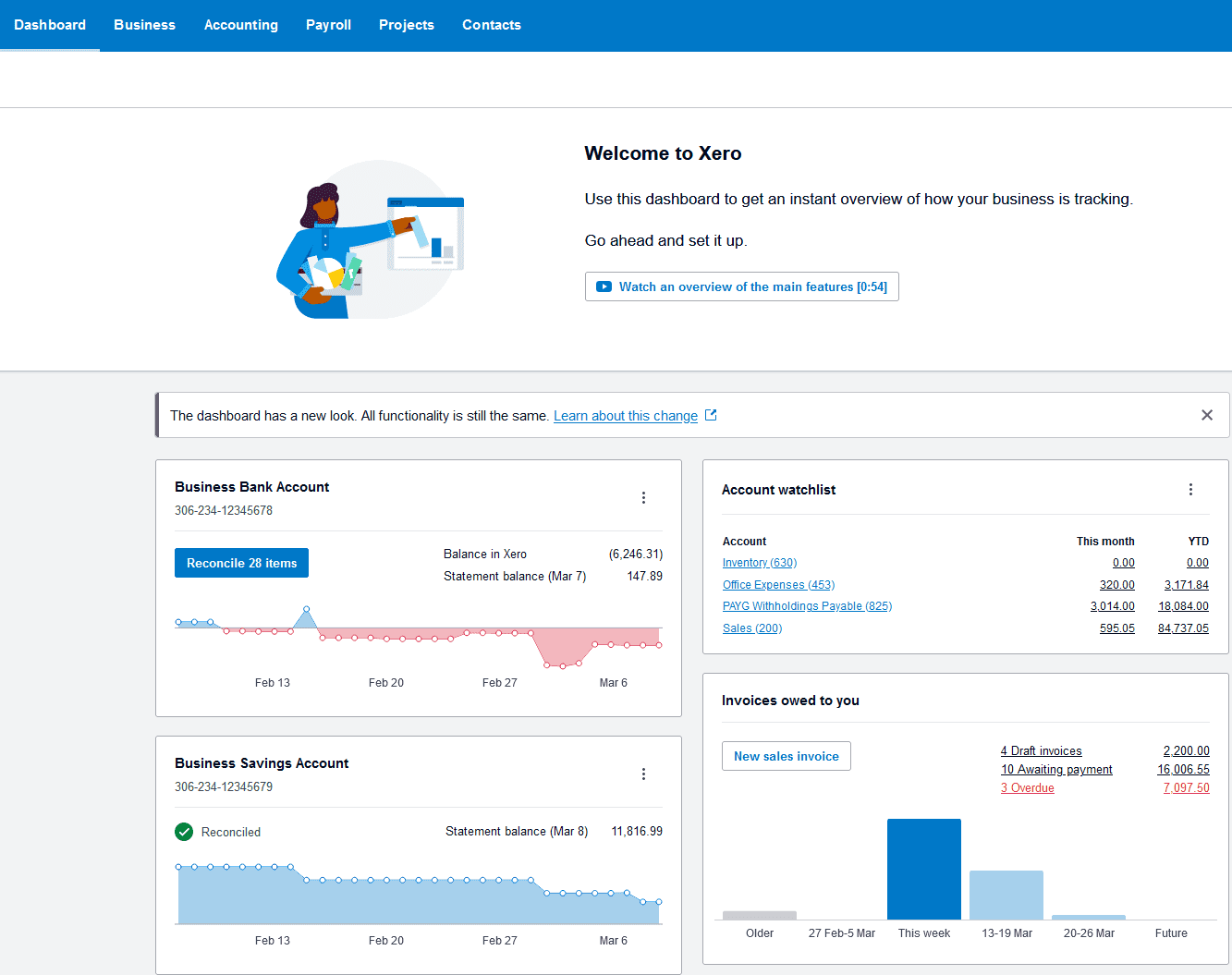
More Top Picks:
• QuickBooks – An easy-to-use tool for bookkeeping, invoicing, and expense management.
• Wave – Free accounting software with AI-powered features for invoicing, payments, and financial reporting.
10. AI for HR
With over 90% of leading service providers using AI to optimise the talent value chain, these AI tools help speed up HR tasks, giving you more time to focus on building your team. Writing job listings, screening CVs, and managing onboarding can be a lot for small business owners. By some estimates, AI-driven recruitment systems can lower hiring costs by 71% (Source: Ideal via Neurond AI).
Our Pick: Manatal
Manatal’s AI-powered recruitment tool stands out, simplifying CV screening and candidate matching. It helps reduce hiring costs and time, while boosting the quality of your hires.
More Top Picks:
• Fetcher – AI-powered recruitment for sourcing top talent quickly.
• Paradox – Personalised chatbot assistant for recruitment and scheduling.
• Workable – AI-driven tool for posting jobs and managing candidates.
• Freshteam – Streamlines hiring with AI and automated workflows.
• Bit.ai – A collaboration tool for onboarding, with AI for personalised support.
• Skillate – AI-driven software for quicker CV screening and shortlisting.
Wrap up
AI can make a real difference for small businesses, cutting down the workload and helping you grow. Start with a few, see what works, and watch your business get ahead.
If you’re ready for the AI revolution, why not take the first step by getting a .ai domain? It’s a perfect way to show your commitment to innovation and stand out in the digital space.
See also: What is the .AI Domain (and How Do I Get One)?

